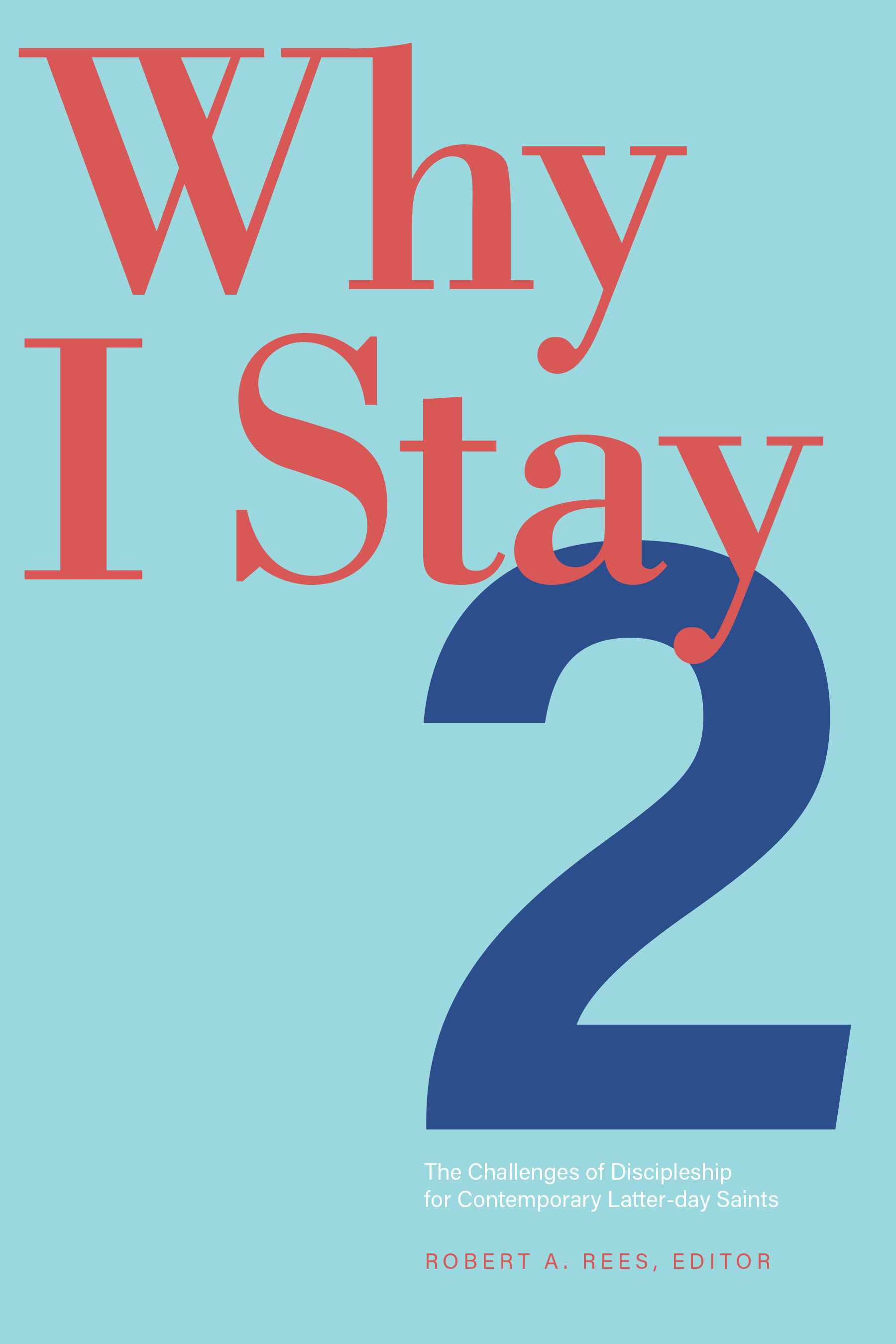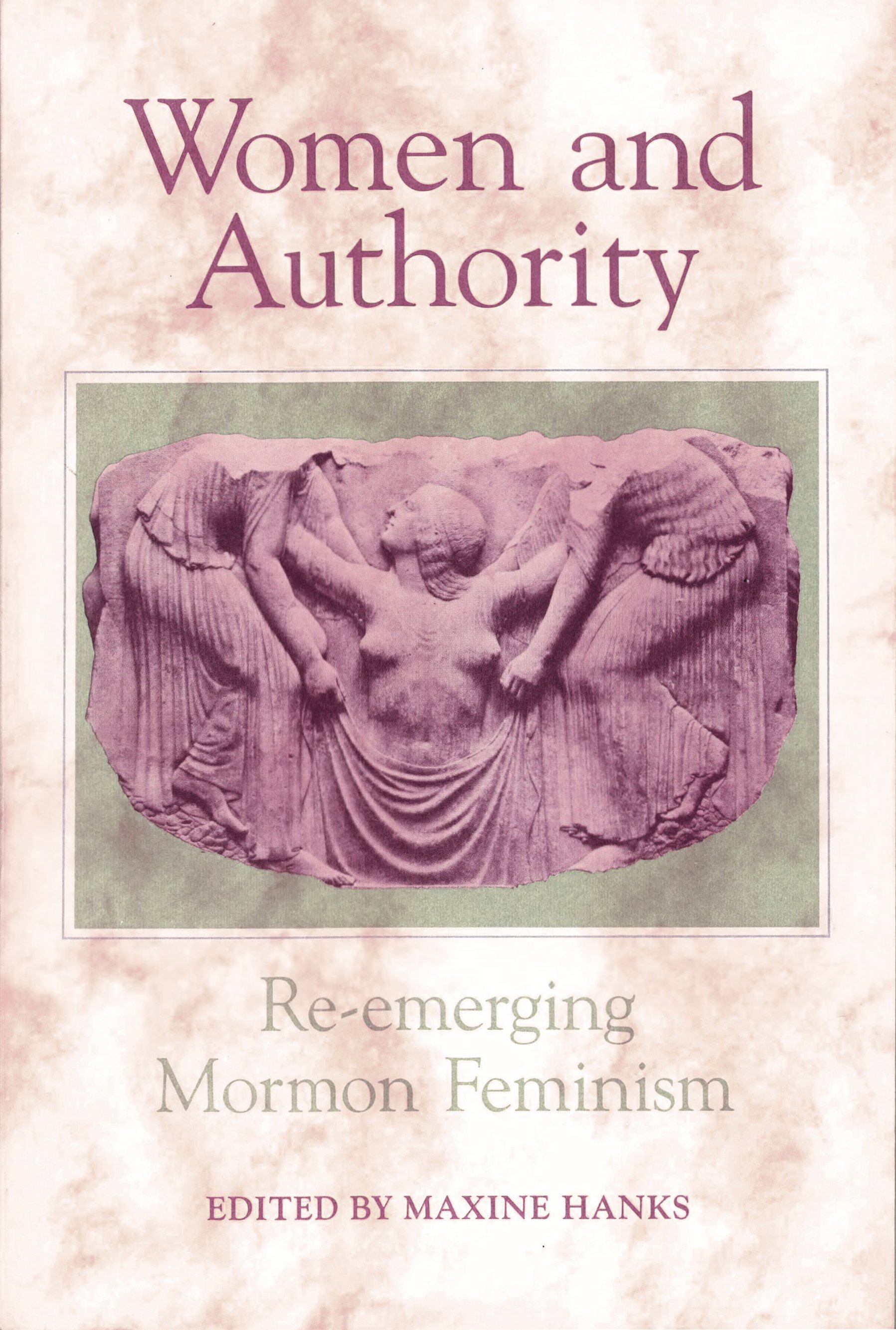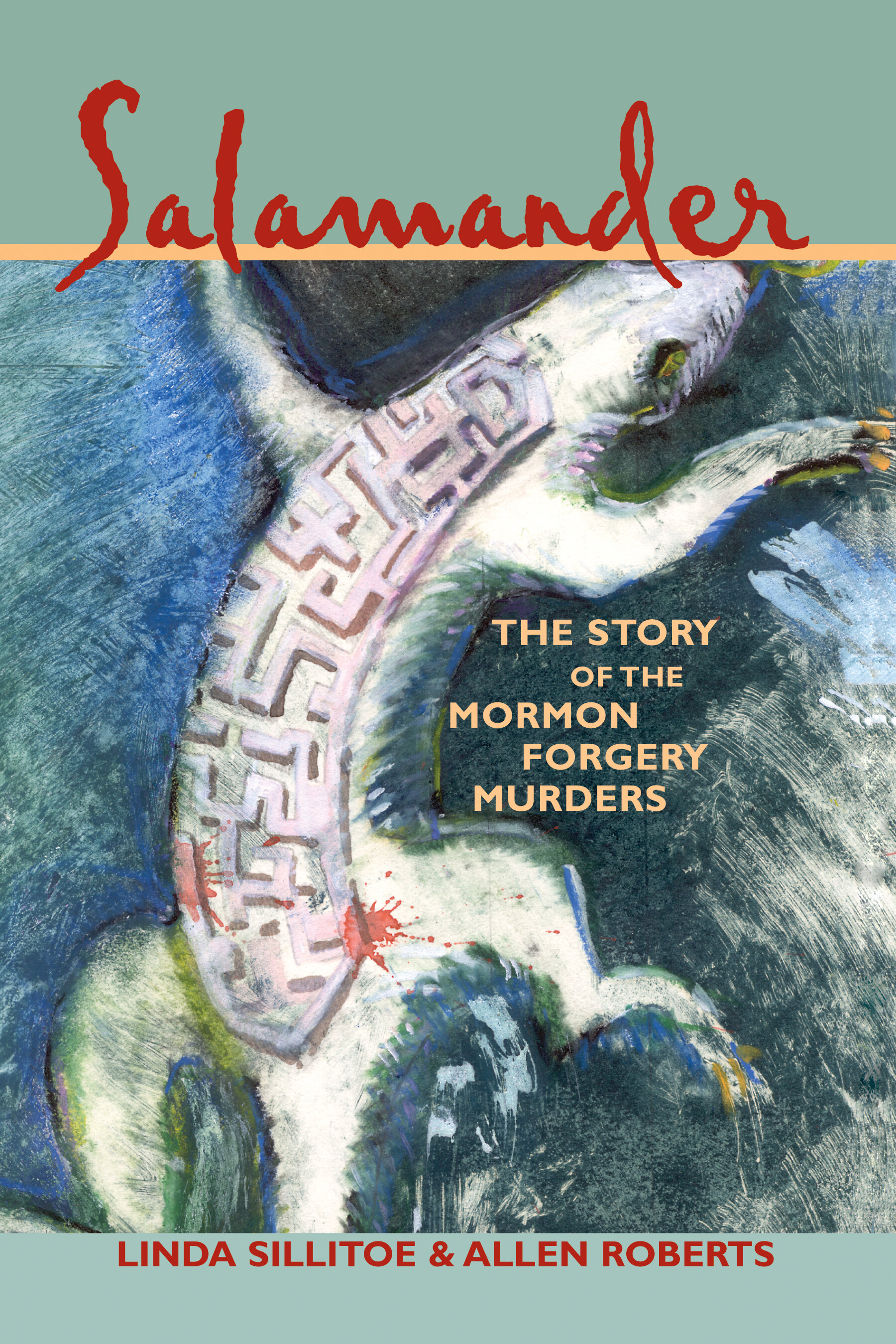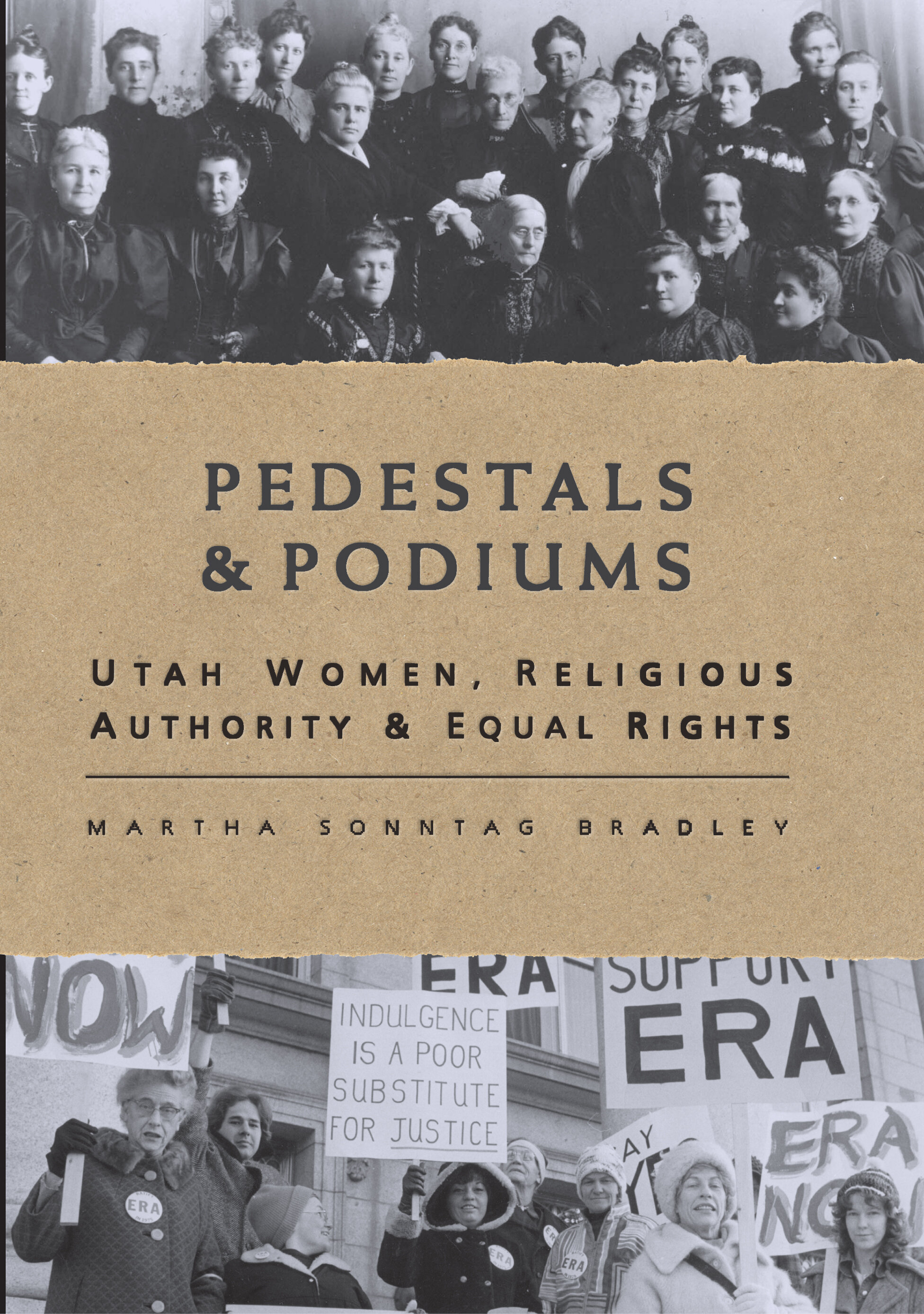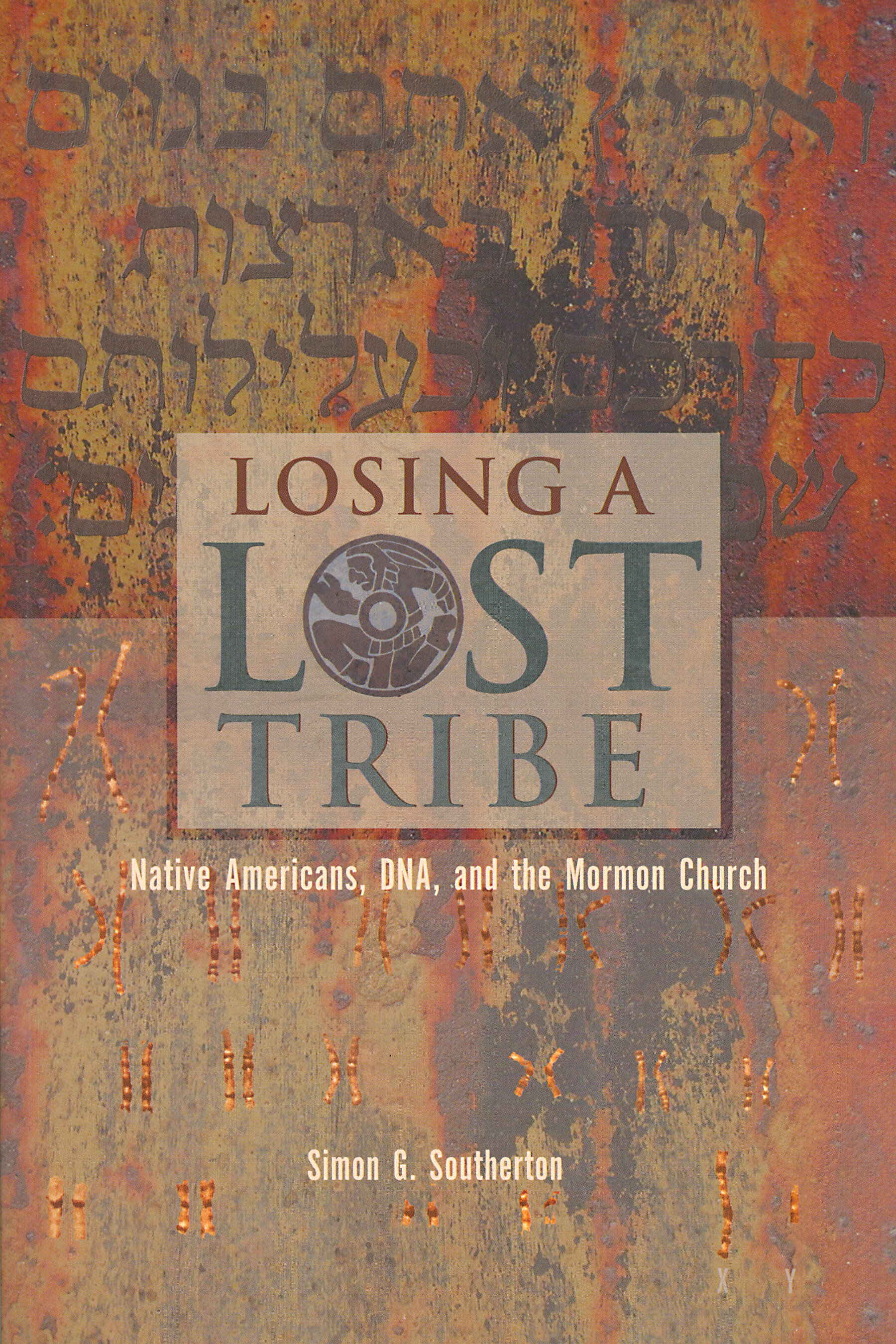 Image 1 of
Image 1 of


"Proving Contraries"
“Proving Contraries”:
A Collection of Writings in Honor of Eugene England
edited by Robert A. Rees
In honor of the late BYU Professor Eugene England (1933–2001), friends and colleagues have contributed their best original stories, poems, reminiscences, scholarly articles, and essays for this impressive volume. In one essay, “Eugene England Enters Heaven,” Robert A. Rees imagines his friend being welcomed into heaven by the Savior. Rees then imagines England “organizing contests between the Telestial and Celestial Kingdoms, leading a theater tour to Kolob, and pleading the cause of friends still struggling in mortality. This,” he concludes, “is the image I have of Gene, that I hold in my heart.”
Douglas Thayer writes about an atheist who believes in miracles. Karen Rosenbaum portrays a university student who is a closet believer (and sometimes a closet doubter). This kind of honesty portraying believable characters—in avoiding stereotypes and easy answers—comes from a lifetime of writing and thinking deeply about life.
The same applies to the non-fiction writers represented in this anthology. Dennis Marden Clark tells of following an inner compass to embrace pacifism but agonizing over the LDS Church’s history of militancy. Yet, in a close reading of LDS scripture, he has found much in the way of support for his position. This kind of life-informed erudition would have made his friend Eugene England proud.
Other essays pursue this topic of a lone scholar or independent thinker going against prevailing currents, not out of contrariness but due to personal conviction. Frances Menlove was with the Red Cross in New York City after 9/11. Her colleague, a BYU-Idaho professor, says “the common notion about there being no Democrats in Idaho is entirely false. On the contrary,” he says, “there are thirty-eight Democrats in Idaho and [I am] one of them.” What matters more than political party or church affiliation, Menlove emphasizes, is “humble service toward one another.”
This theme is amplified by Mary Bradford in “Suddenly Single” as she cites the sage advice of Mormon historian Juanita Brooks’s father: “It is the cowboy who rides the edge of the herd, who sings and calls and makes himself heard, who helps direct the course.” Bradford acknowledges pitfalls in such a stance and ponders the difference between selfish and unselfish individualism. But in the end, she says, we are all alone with our inner-selves.
One imagines Eugene England hovering nearby and smiling as his friends describe their philosophies of life. He was “a primary force in my being able to finally tell the hard stories my heart had learned so well,” Margaret Blair Young relates about her former teacher. “He respected honesty in everything . . . and would tell me flat out when he didn’t care for one of my stories. . . . Was I trying to give easy answers to hard questions? Was I digging deep enough?” As a critic of his friends’ rough drafts and mentor to young writers, England’s influence was immense.
“Were you here,” Robert A. Rees pens in his poem to Gene’s memory, “we would talk / of falling towers and civilizations and how / in dark times we hold poetry in our hearts.” Walking on a rugged northern California beach, Rees inspects a log that probably stood for “as many years as you lived among us. / It too speaks through its multitude of markings— / curved lines, strange scribblings, deep scars.”
Not easy to think and write beyond the limits of accepted norms, but satisfying trying to unify heart and mind in pursuit of high moral achievement as Eugene England did. His legacy of unfettered discussion and careful, faith-based examination of common assumptions continues as others consider life in the real world, an understanding of other people, and authenticity in word and deed.
hardback: $17.00
“Proving Contraries”:
A Collection of Writings in Honor of Eugene England
edited by Robert A. Rees
In honor of the late BYU Professor Eugene England (1933–2001), friends and colleagues have contributed their best original stories, poems, reminiscences, scholarly articles, and essays for this impressive volume. In one essay, “Eugene England Enters Heaven,” Robert A. Rees imagines his friend being welcomed into heaven by the Savior. Rees then imagines England “organizing contests between the Telestial and Celestial Kingdoms, leading a theater tour to Kolob, and pleading the cause of friends still struggling in mortality. This,” he concludes, “is the image I have of Gene, that I hold in my heart.”
Douglas Thayer writes about an atheist who believes in miracles. Karen Rosenbaum portrays a university student who is a closet believer (and sometimes a closet doubter). This kind of honesty portraying believable characters—in avoiding stereotypes and easy answers—comes from a lifetime of writing and thinking deeply about life.
The same applies to the non-fiction writers represented in this anthology. Dennis Marden Clark tells of following an inner compass to embrace pacifism but agonizing over the LDS Church’s history of militancy. Yet, in a close reading of LDS scripture, he has found much in the way of support for his position. This kind of life-informed erudition would have made his friend Eugene England proud.
Other essays pursue this topic of a lone scholar or independent thinker going against prevailing currents, not out of contrariness but due to personal conviction. Frances Menlove was with the Red Cross in New York City after 9/11. Her colleague, a BYU-Idaho professor, says “the common notion about there being no Democrats in Idaho is entirely false. On the contrary,” he says, “there are thirty-eight Democrats in Idaho and [I am] one of them.” What matters more than political party or church affiliation, Menlove emphasizes, is “humble service toward one another.”
This theme is amplified by Mary Bradford in “Suddenly Single” as she cites the sage advice of Mormon historian Juanita Brooks’s father: “It is the cowboy who rides the edge of the herd, who sings and calls and makes himself heard, who helps direct the course.” Bradford acknowledges pitfalls in such a stance and ponders the difference between selfish and unselfish individualism. But in the end, she says, we are all alone with our inner-selves.
One imagines Eugene England hovering nearby and smiling as his friends describe their philosophies of life. He was “a primary force in my being able to finally tell the hard stories my heart had learned so well,” Margaret Blair Young relates about her former teacher. “He respected honesty in everything . . . and would tell me flat out when he didn’t care for one of my stories. . . . Was I trying to give easy answers to hard questions? Was I digging deep enough?” As a critic of his friends’ rough drafts and mentor to young writers, England’s influence was immense.
“Were you here,” Robert A. Rees pens in his poem to Gene’s memory, “we would talk / of falling towers and civilizations and how / in dark times we hold poetry in our hearts.” Walking on a rugged northern California beach, Rees inspects a log that probably stood for “as many years as you lived among us. / It too speaks through its multitude of markings— / curved lines, strange scribblings, deep scars.”
Not easy to think and write beyond the limits of accepted norms, but satisfying trying to unify heart and mind in pursuit of high moral achievement as Eugene England did. His legacy of unfettered discussion and careful, faith-based examination of common assumptions continues as others consider life in the real world, an understanding of other people, and authenticity in word and deed.
hardback: $17.00
“Proving Contraries”:
A Collection of Writings in Honor of Eugene England
edited by Robert A. Rees
In honor of the late BYU Professor Eugene England (1933–2001), friends and colleagues have contributed their best original stories, poems, reminiscences, scholarly articles, and essays for this impressive volume. In one essay, “Eugene England Enters Heaven,” Robert A. Rees imagines his friend being welcomed into heaven by the Savior. Rees then imagines England “organizing contests between the Telestial and Celestial Kingdoms, leading a theater tour to Kolob, and pleading the cause of friends still struggling in mortality. This,” he concludes, “is the image I have of Gene, that I hold in my heart.”
Douglas Thayer writes about an atheist who believes in miracles. Karen Rosenbaum portrays a university student who is a closet believer (and sometimes a closet doubter). This kind of honesty portraying believable characters—in avoiding stereotypes and easy answers—comes from a lifetime of writing and thinking deeply about life.
The same applies to the non-fiction writers represented in this anthology. Dennis Marden Clark tells of following an inner compass to embrace pacifism but agonizing over the LDS Church’s history of militancy. Yet, in a close reading of LDS scripture, he has found much in the way of support for his position. This kind of life-informed erudition would have made his friend Eugene England proud.
Other essays pursue this topic of a lone scholar or independent thinker going against prevailing currents, not out of contrariness but due to personal conviction. Frances Menlove was with the Red Cross in New York City after 9/11. Her colleague, a BYU-Idaho professor, says “the common notion about there being no Democrats in Idaho is entirely false. On the contrary,” he says, “there are thirty-eight Democrats in Idaho and [I am] one of them.” What matters more than political party or church affiliation, Menlove emphasizes, is “humble service toward one another.”
This theme is amplified by Mary Bradford in “Suddenly Single” as she cites the sage advice of Mormon historian Juanita Brooks’s father: “It is the cowboy who rides the edge of the herd, who sings and calls and makes himself heard, who helps direct the course.” Bradford acknowledges pitfalls in such a stance and ponders the difference between selfish and unselfish individualism. But in the end, she says, we are all alone with our inner-selves.
One imagines Eugene England hovering nearby and smiling as his friends describe their philosophies of life. He was “a primary force in my being able to finally tell the hard stories my heart had learned so well,” Margaret Blair Young relates about her former teacher. “He respected honesty in everything . . . and would tell me flat out when he didn’t care for one of my stories. . . . Was I trying to give easy answers to hard questions? Was I digging deep enough?” As a critic of his friends’ rough drafts and mentor to young writers, England’s influence was immense.
“Were you here,” Robert A. Rees pens in his poem to Gene’s memory, “we would talk / of falling towers and civilizations and how / in dark times we hold poetry in our hearts.” Walking on a rugged northern California beach, Rees inspects a log that probably stood for “as many years as you lived among us. / It too speaks through its multitude of markings— / curved lines, strange scribblings, deep scars.”
Not easy to think and write beyond the limits of accepted norms, but satisfying trying to unify heart and mind in pursuit of high moral achievement as Eugene England did. His legacy of unfettered discussion and careful, faith-based examination of common assumptions continues as others consider life in the real world, an understanding of other people, and authenticity in word and deed.
hardback: $17.00
Robert A. Rees is a poet, literary critic, and scholar of Mormon studies who has taught at UCLA and UC Santa Cruz. Rees presently teaches Mormon Studies at the Graduate Theological Union in Berkeley. He is the author of many books and articles, including Fifteen American Authors before 1900, “Proving Contraries”: A Collection of Writings in Honor of Eugene England, and The Reader’s Book of Mormon. He is the producer of two public television documentaries: The Golden Angel over the City and Spires to the Sun: Rodia’s Towers in Watts.
Contemporary Issues
ISBN: 978-1-56085-190-5

